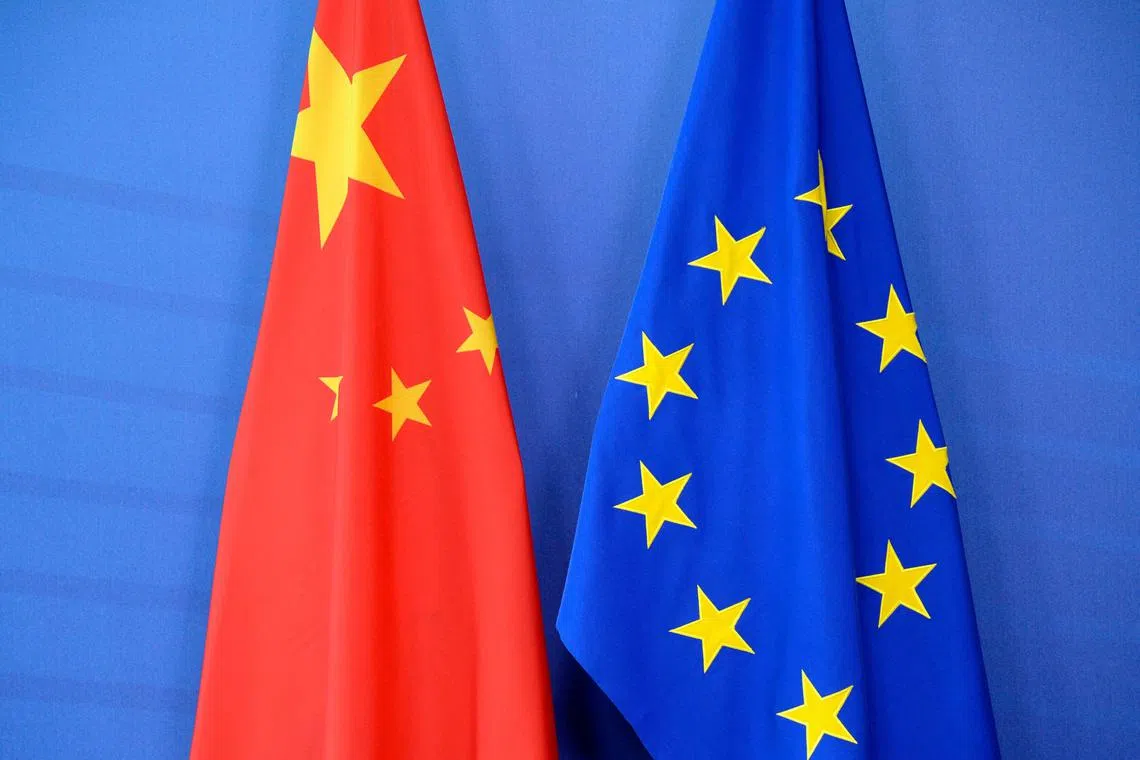China slaps preliminary duties on EU pork imports
Sign up now: Get insights on Asia's fast-moving developments

China will impose preliminary levies ranging from 15.6 per cent to 62.4 per cent on cargoes of the meat.
PHOTO: AFP
BEIJING - China on Sept 5 placed preliminary anti-dumping duties as high as 62.4 per cent on certain pork imports from the European Union, deepening a trade dispute with the bloc arising from its tariffs on Chinese electric vehicles.
The Ministry of Commerce’s preliminary investigation found evidence of dumping that damaged the domestic industry and approved duties ranging from 15.6 per cent to 62.4 per cent that will start on Sept 10, according to a release on Sept 5.
Companies that collaborated with the investigation, among them Spanish, Danish and Dutch firms, received duties ranging from 15.6 per cent to 32.7 per cent. All other firms were assigned 62.4 per cent.
Launched in June 2024, the investigation is widely seen as retaliation for EU tariffs and has hit over US$2 billion (S$2.57 billion) in pork exports, concentrated in major producers such as Spain, the Netherlands, and Denmark.
The European Commission said the investigation was based on “questionable allegations and insufficient evidence” and that it had not yet determined its response.
“But I can categorically assure you that we will take all the necessary steps to defend our producers and industry,” a spokesperson said.
China also has an anti-subsidy case looking into EU dairy exports and anti-dumping measures on EU brandy, which allows exporters to avoid duties if they commit to sell at no lower than a set minimum price.
Beijing has pressed Brussels to replace EV tariffs with a similar price commitment by China-based producers, but negotiations between the two sides have failed to yield an agreement.
The Sept 5 decision is bad news for producers who had hoped Beijing’s decision to extend the investigation for six months in June meant a deal over the bloc’s electric vehicle tariffs was in the offing.
A significant portion of the bloc’s pork shipments to China consists of offal – including pig ears, noses, and feet – highly valued in Chinese cuisine but with few alternative destinations.
“This is worrying news for us. We’re concerned about the impact this will have on prices on the European market,” said Ms Anne Richard, director of French pork industry association Inaporc.
The Sept 5 decision is bad news for producers who had hoped Beijing’s decision to extend the investigation for six months in June 2025 meant a deal over the bloc’s electric vehicle tariffs was in the offing.
The decision is only preliminary and could theoretically be changed before the investigation ends in December.
There is also precedent for China extending investigations after levying tariffs, as in the case of Canadian canola.
Ms Even Rogers Pay, an analyst at Beijing-based Trivium China who specialises in agriculture, said with just a few months left, the odds of finding a negotiated solution were “increasingly slim”. REUTERS


